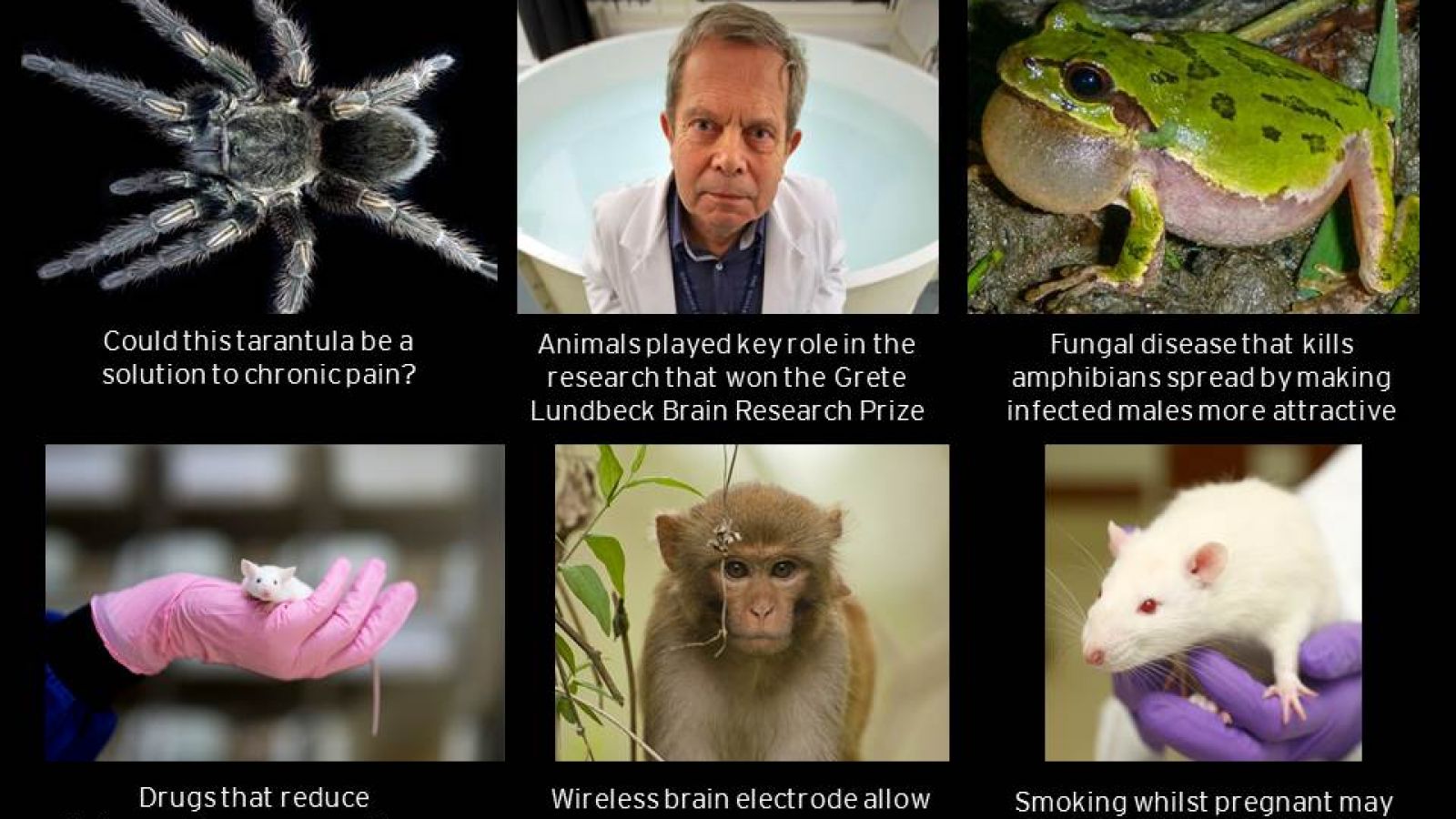Could this tarantula be a solution to chronic pain?
Australian researchers are trying to assess whether the ProTx-II toxin of the Peruvian green velvet tarantula might offer relief to patients with chronic pain. The ProTX-II peptide reduces activity in a pathway important to chronic pain - the discovery was made after thousands of spider toxins were analysed for pain-relief abilities.
http://www.thetimes.co.uk/tto/science/article4701449.ece
Animals played a key role in the research that won the Grete Lundbeck Brain Research Prize
Animals have played a key role in the research which has won three British neuroscientists the Grete Lundbeck European Brain Research Prize – the world’s largest (€1m) prize for Neuroscience. Tim Bliss, Graham Collingridge and Richard Morris won the prize for discovering how memories are formed in the brain. Prof Bliss worked on rabbits to discover that a set of brain synapses crucial to memory could be strengthened through electrical stimulation (a process called long-term potentiation – LTP). Prof Morris proved that LTP was key to rats’ ability to learn and remember by showing LTP-deficient rats could not learn to navigate mazes.
Fungal disease that kills amphibians spread by making infected males more attractive
A fungal disease that has killed amphibians worldwide may be spreading by making the mating calls of infected males more attractive to females. The finding—one of the first—to show that the pathogen can alter a species’s reproductive behavior could explain why frogs and related animals continue to disappear across the globe.
http://www.sciencemag.org/news/2016/03/fungus-turns-frogs-sexy-zombies
Drugs that reduce inflammation can sometimes reduce depression in mice
Drugs that reduce inflammation can sometimes reduce depression. This paper uses mice to try and tease out what is going on.
http://www.jneurosci.org/content/36/9/2590
Wireless brain electrode allow rhesus monkey to control robotic wheelchair by thought alone
Researchers have successfully implanted wireless electrodes into the brains of two rhesus monkeys allowing them to control a robotic wheelchair by thought alone. The experiments are the latest development in “brain-machine interfaces” (BMIs) technologies which offers hope to humans living with paralysis or motor neurone diseases such as ALS (also known as Lou Gehrig’s disease).
Smoking whilst pregnant may increase ageing in offspring, as seen in rats
A study using pregnant rats at University of Cambridge has found that providing mothers with antioxidants during pregnancy meant that their offspring aged more slowly in adulthood. In contrast, mothers with lower levels of oxygen during pregnancy, which can be a consequence of smoking, aged more quickly in adulthood. A reduction in the amount of oxygen that the baby receives is the most common complication in pregnancy and this was simulated by placing a group of pregnant laboratory rats in a room containing 7% less oxygen than normal.
Last edited: 4 April 2022 16:37




